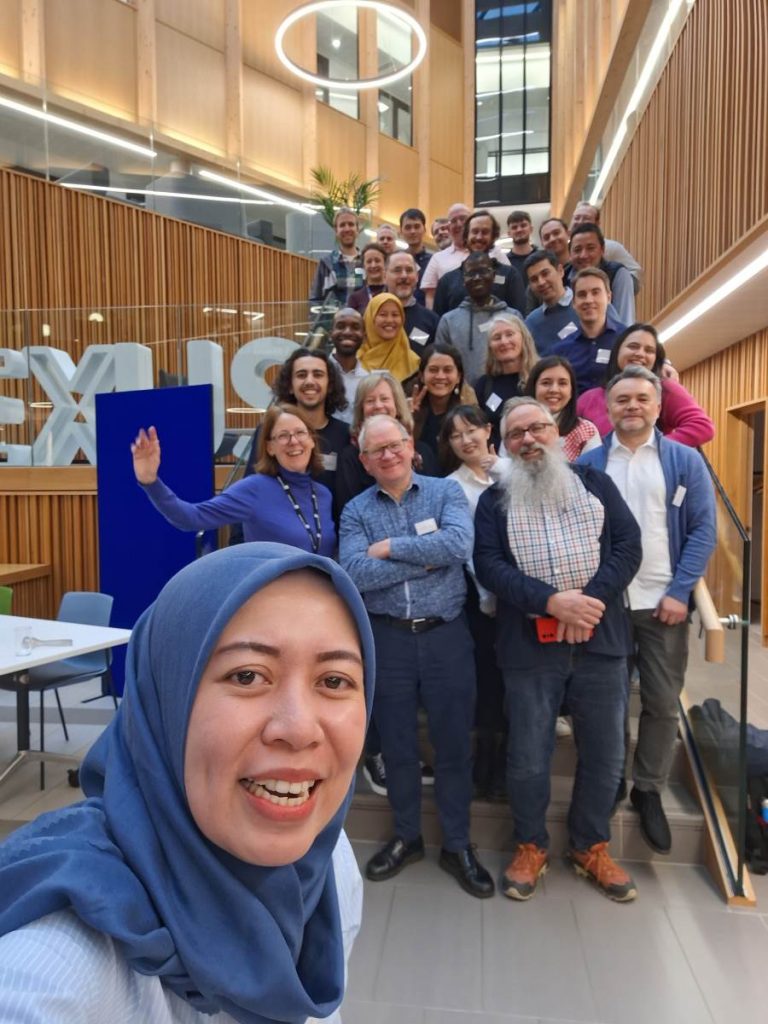Aim:
To bring academics and practitioners together to put the tackling of the nitrous oxide (and subsequently methane) emissions from environmental biotechnologies on a sound methodological footing, with a particular emphasis on quantifying the role of the key microorganisms.
As well as education, training and collaboration, we intend to facilitate, accelerate and underwrite ongoing efforts in:
• The design of accessible pipelines for metagenomic tools and qPCR protocols targeting key genes in N2O emissions
• Ring testing of N2O measurements to ensure comparability between studies
• Promoting the early reporting of results to share lesson learned, and increase confidence in findings

Image by Alan Frijns from Pixabay
Interested?

Contact the Working Group Co-ordinators: Prof Tom Curtis and Dr Ben Allen Newcastle University. Tom and Ben will be working closely with Dr Carlos Domingo-Felez in Glasgow and Dr Bing Guo in Surrey. Prof Tom Curtis is Professor of Environmental Engineering and joined Newcastle University in 1994 after a Master and PhD in Public Health Engineering in Leeds and experience in construction in the Middle East and Public Health Policy in the UK’s Department of Health. He is interested in the interaction between water, waste, the environment and health with a focus on developing countries to the need to harness the new generation of biology and microbial ecology to enable us to develop transformative engineered biological systems that will benefit all societies. Ben Allen is a Bioinformatics Systems Administrator at Newcastle University.
Latest news
See here for recent items on this topic, and for more news click on the tag for N2O WG
For activities to March 2025 see the WG Report HERE.
 Some of the concepts explored by this Working Group are now being taken forward in the TERC Better Water for All Network+, led by Dr Bing Guo of the University of Surrey, with EBNet’s support and with Tom Curtis and Francis Hassard among the Co-Is. Join HERE now!
Some of the concepts explored by this Working Group are now being taken forward in the TERC Better Water for All Network+, led by Dr Bing Guo of the University of Surrey, with EBNet’s support and with Tom Curtis and Francis Hassard among the Co-Is. Join HERE now!
WG Activities
WG Workshops
A workshop on Current Research Climate for Greenhouse Gas Emissions from Sanitation was held on 27-29 January 2025, in conjunction with the University of Leeds. This gathering of experts looked at the data collection and methodology underlying GHG emission assessment from global sanitation systems. For details of the workshop see here, and for the Summary Report see HERE.

Sponsor of the IFEAA Deep Dive Event: Reducing GHG emissions in Agriculture, 19 November 2024, IAAPS, University of Bath, Bristol. This event focused on quantifying and reducing N2O and CH4 emissions from agriculture. See here for presentations. The report on Regulation for On Farm AD and Lagoon methane capture – Enablers and barriers is available here.
Contributed to the Workshop: Exploring The Past, Present and Futures of Environmental Biotechnology as a Field, 11-17:00, 4 November 2024, Euston, Central London. Participants commented on the interim findings from the Social Science Working Group exploration of the field and explored some important and provocative questions about the future.
Animation
 The Microbes in Wastewater Treatment animation is available HERE. This EBNet animation explains the power and complexity that underlies microbial communities in wastewater treatment. For other animations on the interaction of microbiology and its engineered environment, see our YouTube channel.
The Microbes in Wastewater Treatment animation is available HERE. This EBNet animation explains the power and complexity that underlies microbial communities in wastewater treatment. For other animations on the interaction of microbiology and its engineered environment, see our YouTube channel.
Webinars
Microbial reduction of nitrous oxide: a decade of ecophysiological investigation and development into a viable greenhouse-gas removal technology. 26 May 2023, 12-15:00. Invited speaker: Dr Sukhwan Yoon, Department of Civil and Environmental Engineering, Korea Advanced Institute of Science and Technology (KAIST), Daejeon, South Korea.
N2O Emissions from Environmental Biotechnologies – an introduction to progress and challenges. 27 Apr 2023, 13-15:00. The webinar recording is available here.
EBNet POC Funding
EBNet funded the following Proof-of-Concept (POC) project in this area:
Mitigating N2O emission from wastewater treatment processes EBNet POC202204 Dr Bing Guo and Prof Tao Chen, University of Surrey
Relevant publications
Cooperation between autotrophic and heterotrophic denitrifiers under low C/N ratios revealed by individual-based modelling. Xing, W., Gao, D., Wang, Y., Li, B., Zhang, Z., Zuliani, P., Yao, H. and Curtis, T.P., 2024. Science of the Total Environment, 921, p.171091.
Competitive and substrate limited environments drive metabolic heterogeneity for comammox Nitrospira. Martinez-Rabert, E., Smith, C.J., Sloan, W.T. and Gonzalez-Cabaleiro, R., 2023. ISME communications, 3(1), p.91.
An efficient oxic-anoxic process for treating low COD/N tropical wastewater: startup, optimization and nitrifying community structure. How, S.W., Nittami, T., Ngoh, G.C., Curtis, T.P. and Chua, A.S.M., 2020. Chemosphere, 259, p.127444.


